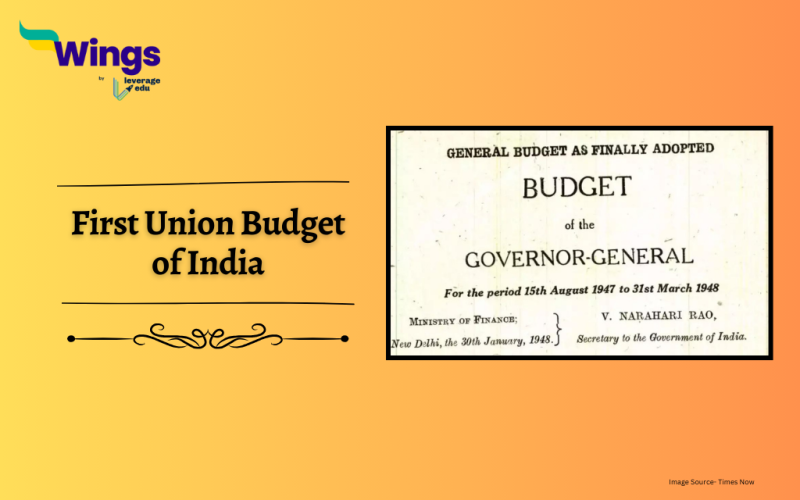The Union Budget of India holds immense significance for our country’s economy as it sets the tone for the financial year ahead. Moreover, it is the annual financial statement presented by the Union Finance Minister in the Parliament. Additionally, it outlines the government’s revenue and expenditure plans for the upcoming year. The First Union Budget of India, after gaining independence in 1947, was a historic milestone for India. This article aims to provide an informative overview of the first Union Budget of India and its impact.
Table of Contents
Who Presented the First Union Budget of India?
The answer to this question can only be given by taking into account the two periods that India went through. Before Independence and Post-Independence.
Before Independence:
The First Union Budget of India before Independence was presented by James Wilson in the year 1860.
- He was a British economist and is credited for introducing the first ever budget in India just like that of the British Government model.
- Moreover, he was appointed to find a solution to the then-prevailing Indian crisis which was caused by the Mutiny of 1857.
- Wilson framed the financial budget for India.
- Thus, for the first time James Wilson, formulated and introduced the regime of income tax collection in India.
Also Read – The Making of Indian Constitution [Constitutional Design]
First Union Budget of Independent India :
The first Union Budget of Independent India was presented on the 26th of November 1947, by India’s first Finance Minister, R.K. Shanmukham Chetty.
- The budget was introduced just after three months of attaining independence.
- In addition, this historic event marked the beginning of India’s journey as an independent nation and set the stage for economic development and social welfare programs.
- India’s first Union budget was an Interim Budget because of the awaiting elections for a permanent government.
Shanmukh Chetty belonged to a business family in Coimbatore. He was born in 1892 and studied economics at Madras Christian College. He was elected as the First Finance Minister of Independent India by Jawaharlal Nehru.
In his speech, he pointed out -“I rise to present the first budget of a free and independent India. This occasion may well be considered as a historical one, and I count it as a rare privilege that it has fallen to me to be the finance minister to present this Budget.”

Main Focus of the First Union Budget of India
One of the primary objectives of the first Union Budget was to rebuild a nation that was destroyed by years of colonial rule and partition. Furthermore, the budget allocated significant funds for reconstruction and rehabilitation efforts. Moreover, it aimed to address the immediate needs of the people and lay the foundation for sustainable growth:
Key Initiatives that were initiated were based on the subjects:
1. Bringing Agricultural Reforms
2. Encouraging Industrial Development
3. Addressing the socio-economic disparities inherited from the colonial era was another key focus of the first Union Budget.
4. Economic Implications by emphasizing the importance of fiscal discipline, prudent management of resources, and equitable distribution of wealth.
It allocated funds for education, healthcare, and poverty alleviation programs. India’s first budget revenue was targeted at Rs 171.15 crore. Moreover, the total expenditure was estimated at Rs 197.29 crore that year.
Also Read: How to Become a Budget Analyst in India?
The first Union Budget of India holds immense historical significance as it established the framework for the country’s economic policies. It laid the foundation for inclusive growth, focusing on agriculture, industry, and social welfare. The budget’s initiatives continue to shape India’s economic trajectory.
Related Blogs
Lastly, we hope you liked our blog and gained an insight into the First Union Budget of India. Moreover, you may even read more blogs and empower yourself with knowledge regarding Civics and Polity!
 One app for all your study abroad needs
One app for all your study abroad needs













